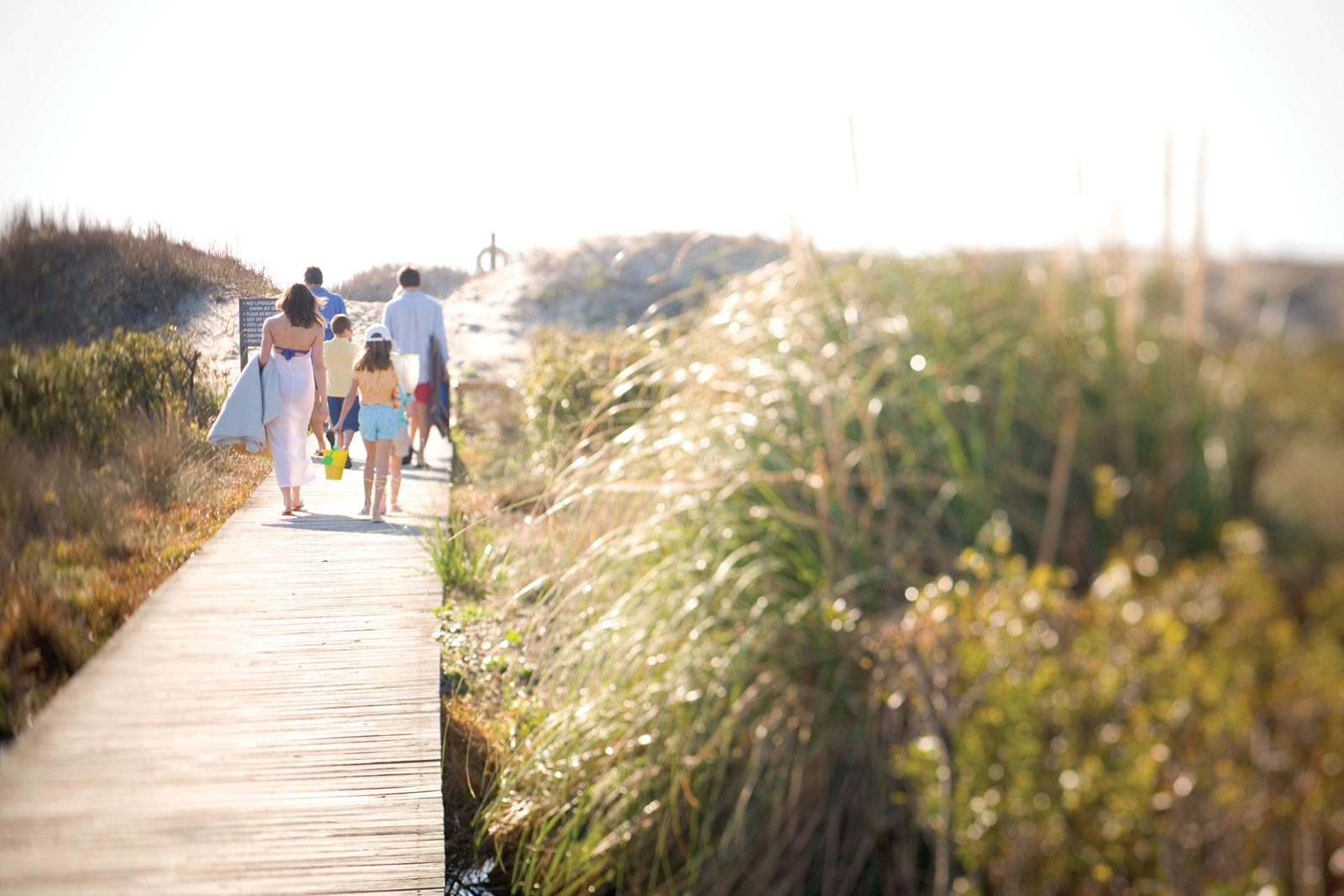Island Life
Only minutes from Charleston, SC, Seabrook Island’s 2,200 acres stand as a reminder of the pleasures of a slower pace of life. Generations of residents and guests have enjoyed the best of life among the most peaceful of settings in this private island paradise.
Seabrook Island is a one-of-a-kind private destination with miles of beaches, a nationally recognized Members-Only Club overlooking the Atlantic Ocean with multiple dining options, two championship Audubon-certified golf courses, a tournament-level Racquet Club, full-service Equestrian Center, and fitness/aquatics complex. All of this is set in a lush semi-tropical maritime paradise. Despite its tranquil secluded ambiance, Seabrook Island lies just outside one of the world’s most cherished cities, Charleston, SC.
Beaches
With nearly four miles of pristine beaches, Seabrook Island lays claim to one of the most dynamic stretches of beach shoreline on the East Coast.
Wildlife
The Seabrook Island community is dedicated to protecting and preserving the island’s natural resources for generations to come. An Audubon International Certified Sustainable Community, Seabrook Island is home to a variety of coastal wildlife.
Take a Look Around Seabrook Island
Our interactive map shows all amenities and more around Seabrook Island.
Dining & Shopping
A variety of dining and shopping options can be found both on-island, as well as just outside the gate at nearby Bohicket Marina and Freshfields Village, and in the surrounding Charleston areas.
Nearby Information
With the charm of historic downtown Charleston just minutes away, Seabrook enjoys all the amenities of nearby Bohicket Marina and Freshfields Village, as well as Kiawah and Johns Island.
History
First discovered by settlers in 1666, Seabrook boasts a colorful and varied history.
Check Out The Latest News At Seabrook
Explore our latests posts and stay up to date with Seabrook Island
Social Groups & Clubs
Seabrookers self-organize and sustain dozens of groups and clubs on the Island, including organizations such as Turtle Patrol, Birders, Green Space Conservancy, Natural History Group, as well as photography, art and book clubs, and many more.







